How to Overcome B2B Multichannel Marketing Challenges
In the contemporary marketing landscape, multichannel and omnichannel marketing strategies have become indispensable for B2B marketers to ensure a seamless customer experience across various touchpoints. But developing and implementing an effective multichannel strategy isn’t a walk in the park.
According to a recent survey by ZoomInfo1, a significant number of B2B marketers are struggling to create a robust multichannel strategy.
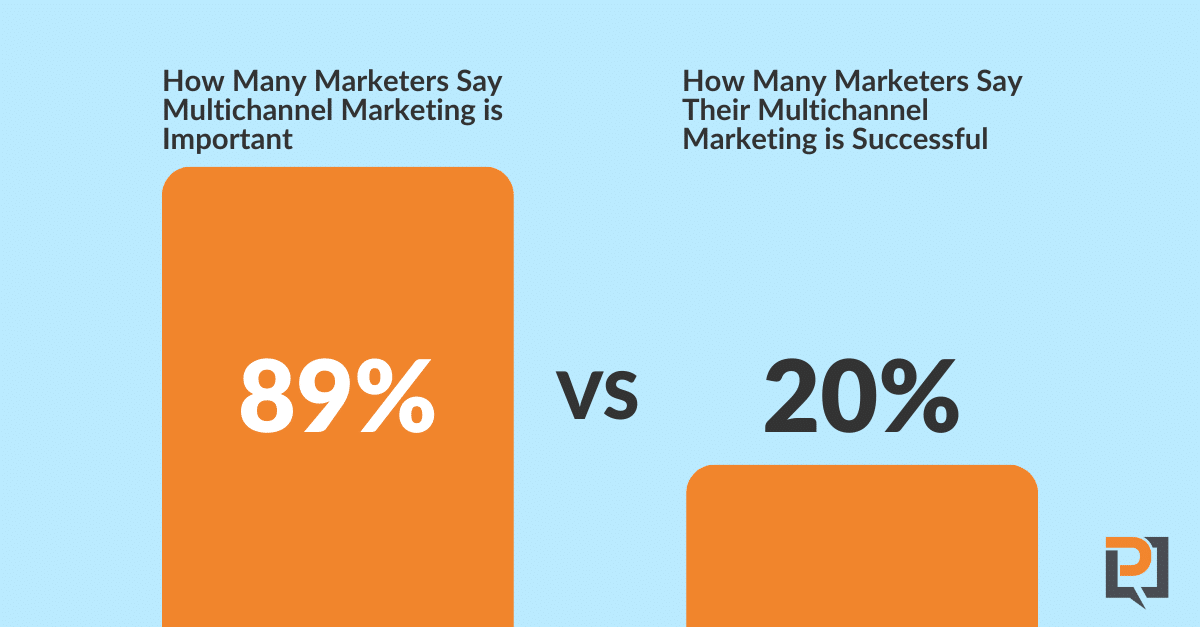
The Importance of Multichannel Marketing
Only 20% of respondents consider their multichannel marketing strategies to be very successful. The vast majority (75%) feel they are only somewhat good. That’s a problem because there’s a strong consensus on the importance of multichannel marketing–39% say it’s very important and 50% say it’s somewhat essential.
Multichannel Marketing Challenges
The challenges that encumber the deployment of a fruitful multichannel strategy are numerous. Top among these challenges are:
- Creating an effective strategy: 57%
- Insufficient budget/resources: 46%
- Data quality: 44%
- Data quantity: 26%
- Ineffective marketing attribution: 16%
- Disconnected technology stack: 15%
- Siloed/conflicting data: 9%
Moreover, aligning sales and marketing efforts remains an elusive goal for many. Just 19% believe they are in sync to a great extent, while a concerning 32% admit to having little to no alignment.
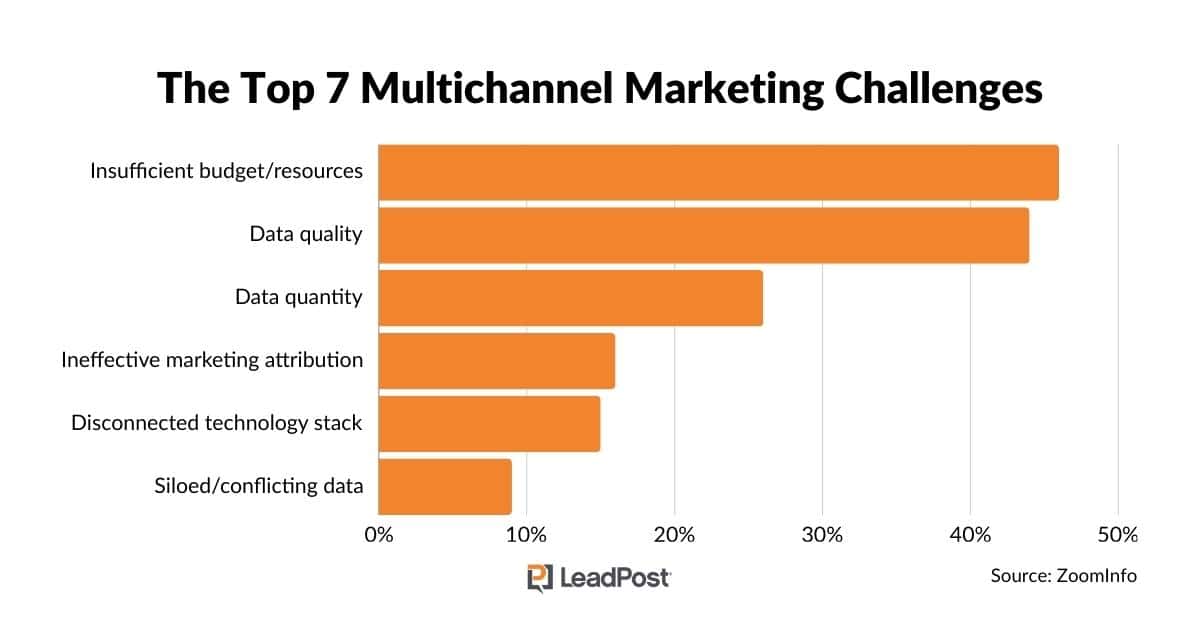
Email is King
Email emerged as the go-to channel for connecting with prospective buyers, with a whopping 73% rating it as the most effective channel.
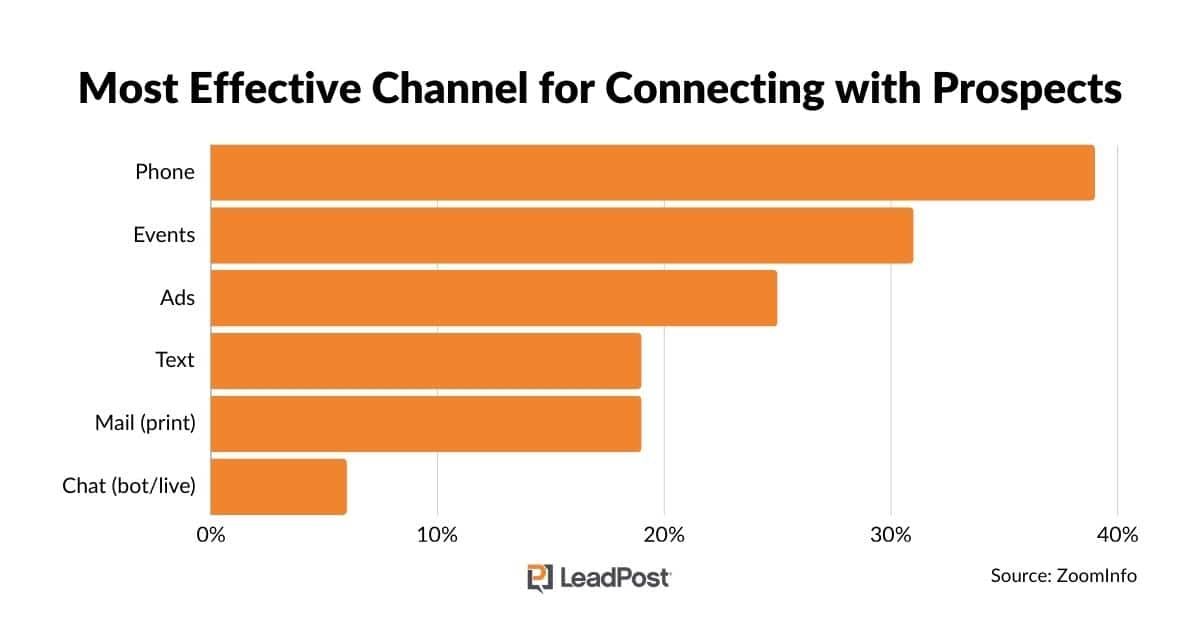
Email marketing is also seen as the most impactful channel; 50% of respondents ranked it number one. Social media was a distant second at 33%. Content marketing came in third at 26%.
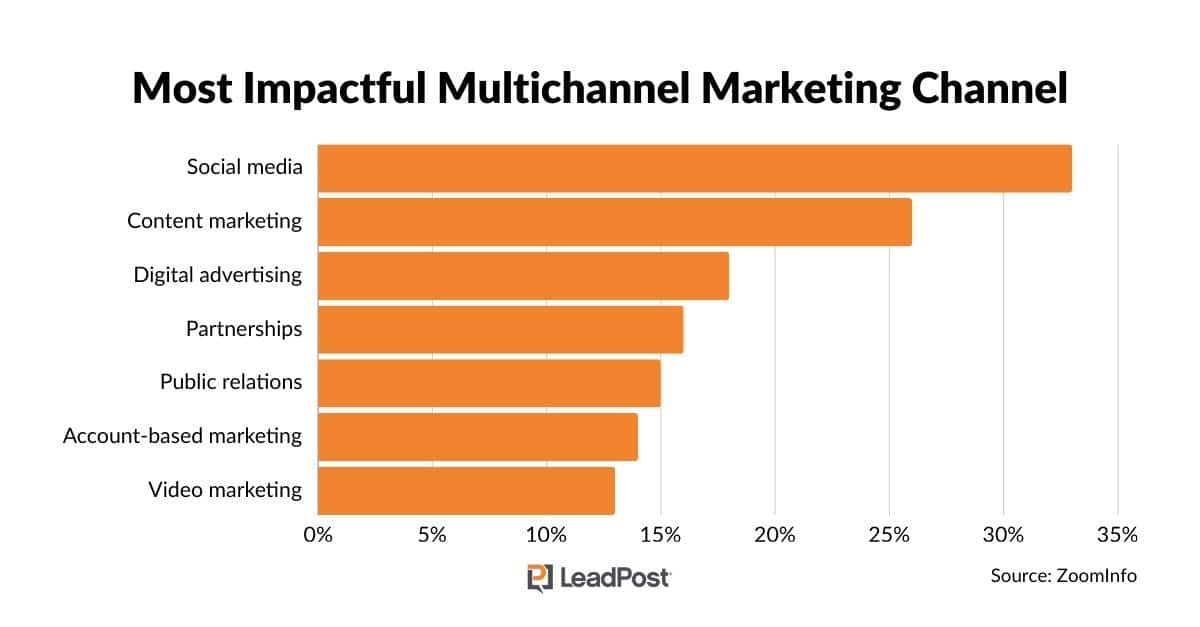
Good Data is Critical
Unsurprisingly, data is hailed as the linchpin for successful multichannel marketing. Yet, many B2B firms struggle with harnessing data across multiple channels for a consistent customer experience. The challenges in collecting and analyzing data for multichannel efforts include:
- Lack of resources or expertise in data analysis: 42%
- Difficulty in tracking and consolidating data from different sources: 36%
- Incomplete or inaccurate data: 34%
- Lack of an overall data strategy: 33%
- Privacy and security concerns: 27%
Despite these challenges, B2B marketers are keen on deploying data to achieve personalization, with 47% using data to personalize product recommendations and promotions, and 42% using it to segment their audience for targeted marketing campaigns.
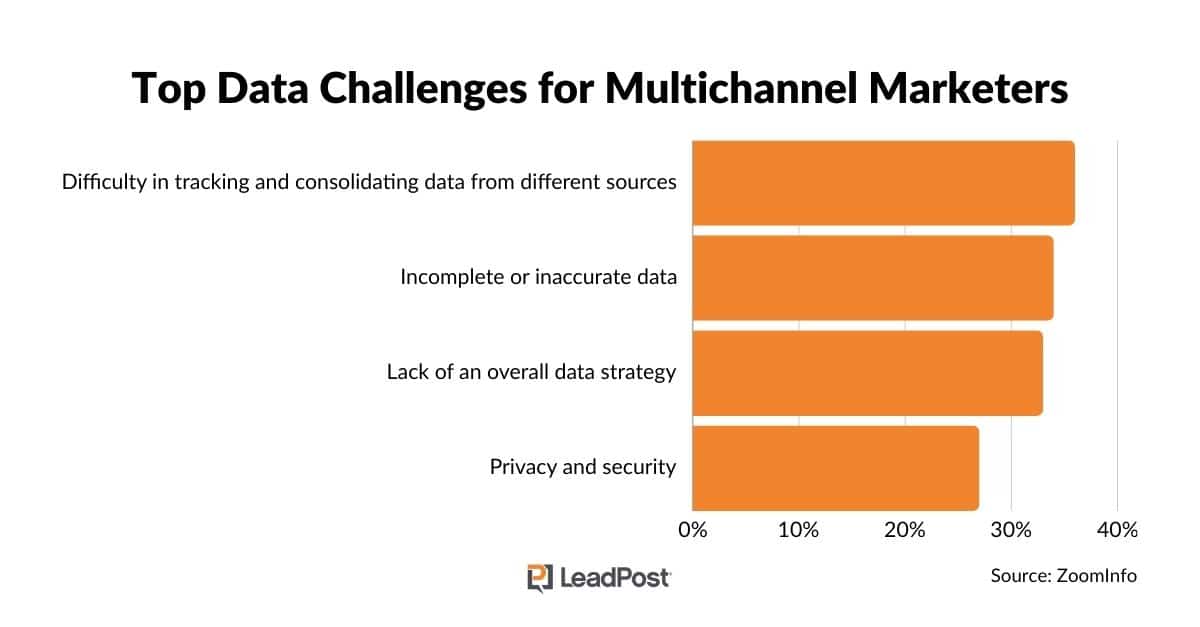
How to Get Better Data
When it comes to tracking and consolidating data, website visitor identification software can be a game-changer for B2B marketers. Platforms like LeadPost help in decoding the identity of anonymous website visitors and enriching existing customer records. This enables marketers to reach out through email, social media ads, display ads, and direct mail, even if the visitor doesn’t convert on the website.
Visitor identification empowers marketers to enrich their existing data with actionable insights. This allows for more personalized and targeted marketing campaigns.
Furthermore, with LeadPost, marketers can overcome the challenges of disconnected technology stacks and siloed data. Our platform integrates seamlessly with various marketing technologies, ensuring a unified data ecosystem conducive to effective multichannel strategies.
Sources
1 “Seamless B2B: Marketers Deploy Data To Drive A Cross-Channel Experience.” MediaPost, 26 Oct. 2023, https://www.mediapost.com/publications/article/390536/seamless-b2b-marketers-deploy-data-to-drive-a-cro.html

